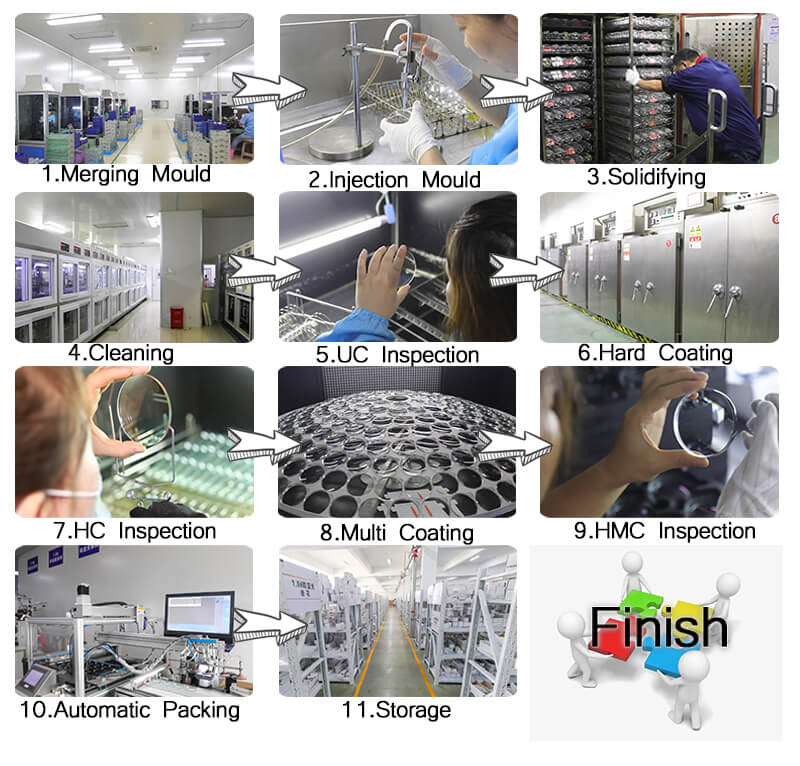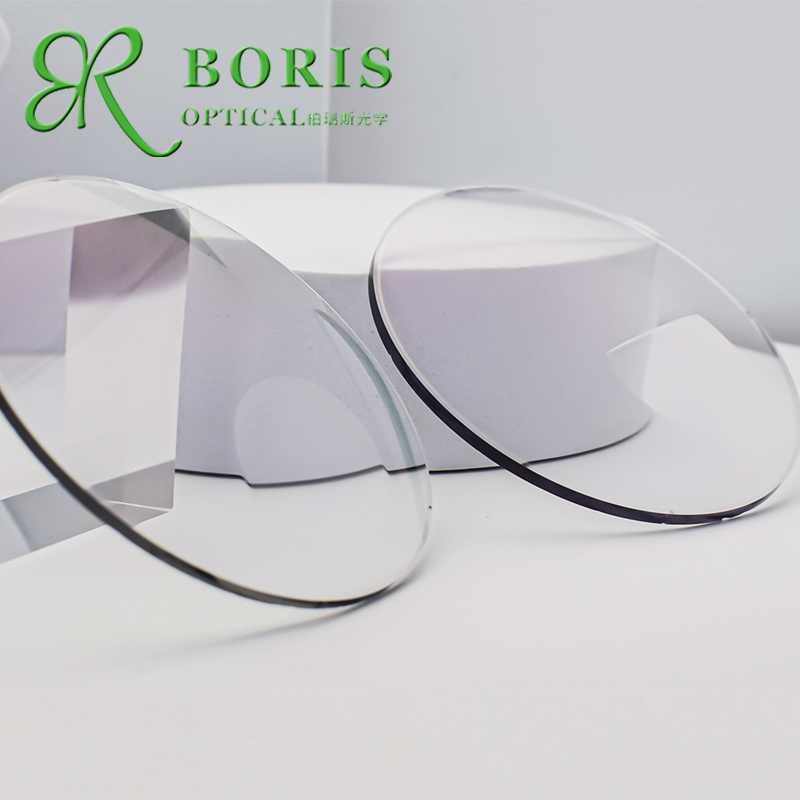Rapid Delivery for Photosensitive Lenses - 1.67 MR-7 FSV High Index HMC optical lenses – Boris
Rapid Delivery for Photosensitive Lenses - 1.67 MR-7 FSV High Index HMC optical lenses – Boris Detail:

Production Details
| Place of Origin: | Jiangsu | Brand Name: | BORIS |
| Model Number: | High Index Lens | Lenses Material: | MR-7 |
| Vision Effect: | Single Vision | Coating Film: | UC/HC/HMC/SHMC |
| Lenses Color: | White(indoor) | Coating Color: | Green/Blue |
| Index: | 1.67 | Specific Gravity: | 1.35 |
| Certification: | CE/ISO9001 | Abbe Value: | 32 |
| Diameter: | 80/75/70/65mm | Design: | Asperical |

MR-7 is generally used to make high-level lenses, with a refractive index of 1.677. Enjoy better visual quality than ever, even with height numbers. Compared to traditional lenses, the MR-7 is thinner and safer. MR-7 is also a material with better dyeing effect at present. Some colored lenses and myopia sunglasses are the best choice for this material.
Production Introduction
The refractive index of MR-7 and MR-10 materials reaches 1.67, and the production of high-level lenses is lighter and thinner. The thermal deformation temperature of MR-7 is 85 degrees, and that of MR-10 is 100 degrees. Both MR-7 and MR-10 are 1.67 refractive index lens materials. MR-7 is easier to dye than MR-10, so MR-7 is more suitable for myopia sunglasses, or fashion lenses. MR-10 lenses have higher hardness, better high temperature resistance, and higher processability. They are often used in workshops and custom lens processing.

Most of today’s spectacle lenses are based on resin lenses. Generally, in the case of poor heat resistance, the film on the surface of the lens will crack, which is caused by thermal expansion. Compared with the reflective film of the lens, the degree of thermal expansion of the base material is serious, and the degree of thermal expansion of the reflective film and the base material is different, and the film crack will occur.
Based on this consideration, MR-10 avoided this problem from the beginning of material design, and through continuous improvement, became a material with good heat resistance and low thermal expansion coefficient.
First, as the temperature increases, the thermal expansion coefficient tends to increase, but the thermal expansion coefficient of MR-10 is 25% smaller than that of general 1.67 materials. Compared with the general 1.67 material, MR-10 has less thermal expansion, is not prone to cracks, and is relatively less affected by heat.
Second, when the temperature is 95°C, a large number of cracks appear on the conventional 1.67 lens, while the MR-10 is completely unaffected.

Product Process

Product Video
Product detail pictures:



Related Product Guide:
We emphasize progress and introduce new solutions into the market each year for Rapid Delivery for Photosensitive Lenses - 1.67 MR-7 FSV High Index HMC optical lenses – Boris , The product will supply to all over the world, such as: Philadelphia, UK, Cyprus, Till now, the goods list has been updated regularly and attracted clients from around the globe. Detailed facts is often obtained in our web-site and you'll be served with premium quality consultant service by our after-sale group. They are going to help you get comprehensive acknowledge about our products and make a satisfied negotiation. Company go to to our factory in Brazil is also welcome at any time. Hope to obtain your inquiries for any pleased co-operation.
We have been engaged in this industry for many years, we appreciate the work attitude and production capacity of the company, this is a reputable and professional manufacturer.





